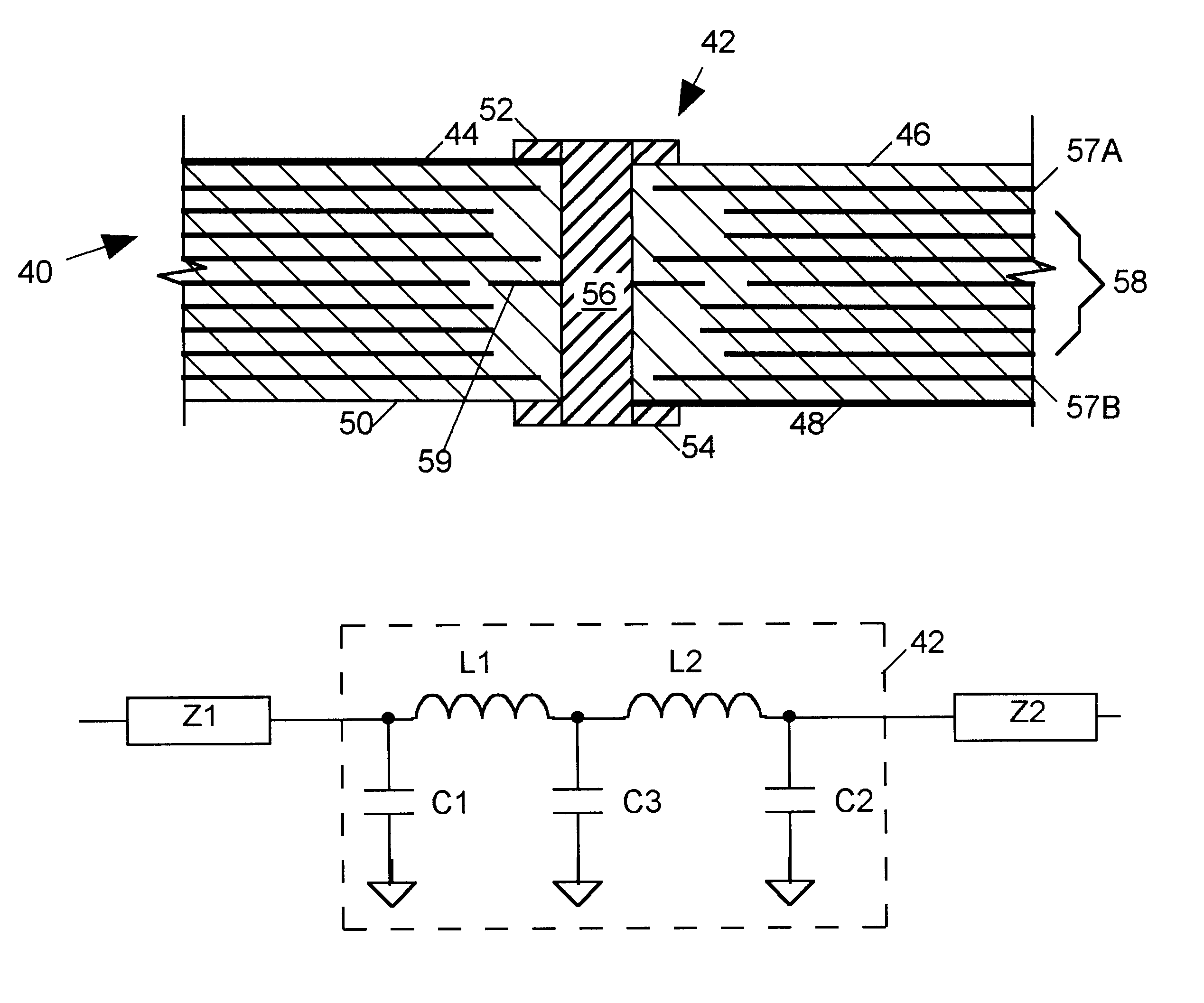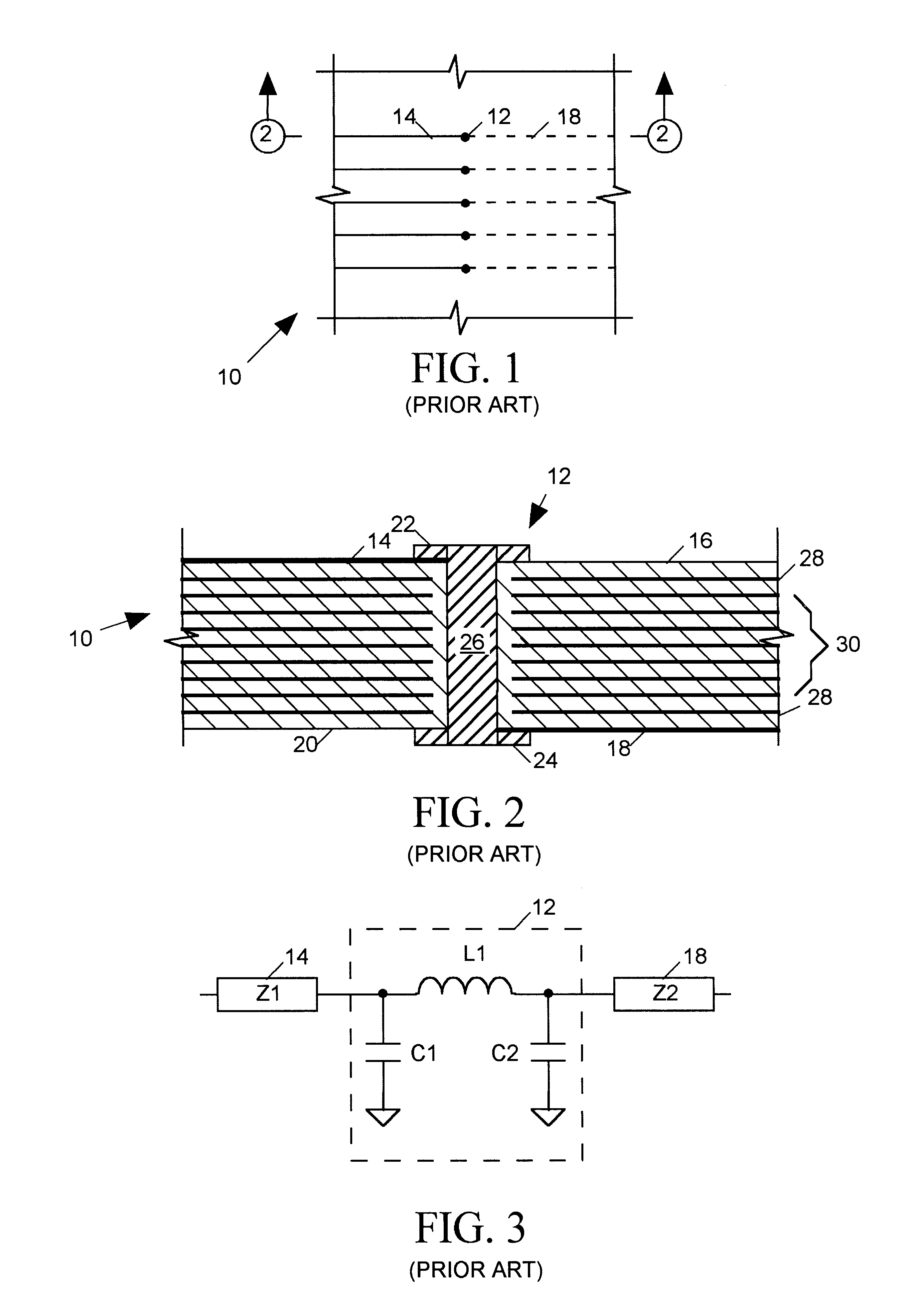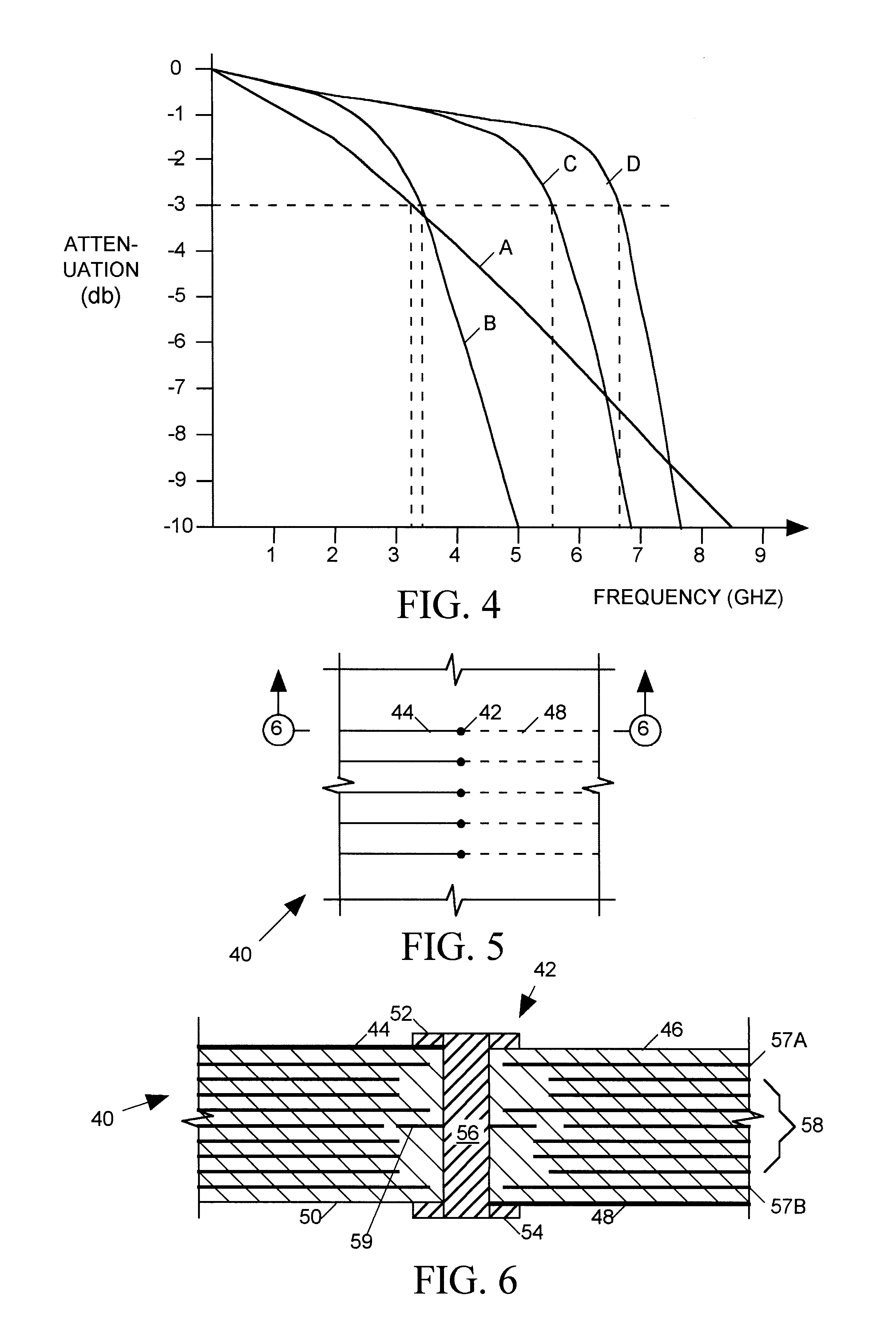High frequency printed circuit board via
a printed circuit board and high frequency technology, applied in the direction of printed element electric connection formation, high frequency circuit adaptation, waveguide, etc., can solve the problems of low signal distortion and attenuation, limited capacity reduction of c1 and c2, and difficulty in routing large numbers of high frequency signals on the circuit board
- Summary
- Abstract
- Description
- Claims
- Application Information
AI Technical Summary
Problems solved by technology
Method used
Image
Examples
Embodiment Construction
FIGS. 5 and 6 are plan and sectional elevation views of a portion of a multi-layer printed circuit board (PCB) 40 employing a conductive via 42 in accordance with the invention to link a microstrip conductor 44 formed on an upper surface 46 of PCB 40 to a microstrip conductor 48 formed on a lower surface 50 of the PCB. Via 42 includes an upper cap (annular ring 52) contacting conductor 34, a lower cap (annular ring 54) for contacting conductor 18 and a vertical conductor 56 extending between upper and lower annular rings 52 and 54. PCB 40 also includes power and ground planes 57A, 57B formed on substrate layers below upper surface 46 and above lower surface 50, and may also include additional embedded power and ground planes or signal planes 58 formed on other layers. Vertical conductor 56 passes though holes in power signal planes 57A, 57B and 58 that are sufficiently large to prevent conductor 56 from contacting planes 57A, 57B and 58.
In accordance with the invention a capacitor i...
PUM
 Login to View More
Login to View More Abstract
Description
Claims
Application Information
 Login to View More
Login to View More - R&D
- Intellectual Property
- Life Sciences
- Materials
- Tech Scout
- Unparalleled Data Quality
- Higher Quality Content
- 60% Fewer Hallucinations
Browse by: Latest US Patents, China's latest patents, Technical Efficacy Thesaurus, Application Domain, Technology Topic, Popular Technical Reports.
© 2025 PatSnap. All rights reserved.Legal|Privacy policy|Modern Slavery Act Transparency Statement|Sitemap|About US| Contact US: help@patsnap.com



